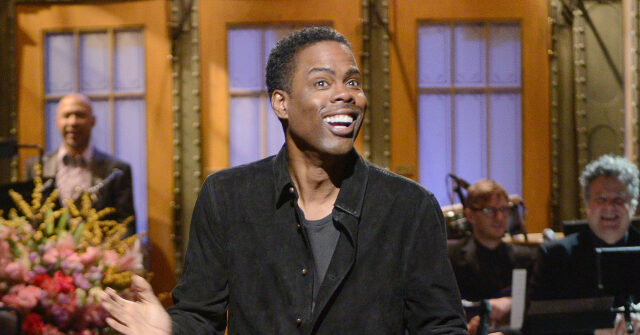In a lively opening monologue on NBC’s Saturday Night Live, actor-comedian Chris Rock took the opportunity to poke fun at President Joe Biden, specifically commenting on Biden’s recent decision to preemptively pardon his son, Hunter Biden. Rock humorously suggested that the pardon was a symbolic “middle finger” to the American public, indicating the president’s defiance amidst ongoing scrutiny. He jokingly acknowledged the president’s slowing pace and speech, yet humorously affirmed that Biden still knows how to deliver sharp messages. With his trademark comedic style, Rock sought to address political topics through humor, highlighting the bitter divide in American politics.
Rock also made a point to mention former President Donald Trump, referencing his political comeback and perceived resilience in the face of adversity. He quipped about Trump surviving an assassination attempt, winning the presidency again via the popular vote, and being named Time magazine’s “Person of the Year.” This allusion to Trump’s controversial but impactful political presence serves to capture the fluctuating sentiments in American politics. Rock’s observations about Trump were laced with irony and sarcasm, portraying the complexities and absurdities often found within political discourse.
In the realm of Biden’s decision to pardon Hunter, the context surrounding this move drew attention. The pardon, which covers actions over the past ten years, alleviates Hunter Biden from potential prosecution for various allegations, including gun charges and tax evasion. The timing and implications of this decision raised eyebrows, especially given the administration’s earlier stance where they indicated that Biden would not be granting his son a pardon. This apparent contradiction reflects the sometimes unpredictable nature of political promises, which often leave the public questioning the motives and integrity behind such decisions.
Public reaction to the pardon appears to be largely unfavorable. A recent survey indicated that only 20% of Americans supported Biden’s decision to pardon his son, suggesting a lack of confidence in the president’s judgment regarding his son’s legal issues. This statistic speaks to the broader sentiment among the electorate, many of whom feel disillusioned by perceived preferential treatment in the political sphere. The stark contrast between public expectation and the reality of the pardon underscores a growing rift between lawmakers and the constituents they serve, adding fuel to ongoing debates about accountability and justice.
As Rock navigated these sensitive political topics, his approach was emblematic of the comedic genre’s role in discussing serious issues while providing levity. By addressing current events, he invites humor into the often-tense discussions surrounding political figures and their actions. Moreover, the interplay between comedy and current affairs serves to engender a dialogue among viewers, making them reflect on their own opinions and beliefs while being entertained. Rock’s monologue thus serves a dual purpose: to challenge the status quo and provide a humorous lens through which the audience can engage with pressing national issues.
In summary, Chris Rock’s appearance on SNL highlights both comedic relief and critique of the political landscape, emphasizing the contentious atmosphere surrounding President Biden’s decision-making, especially concerning Hunter Biden. The contrast between public sentiments and political actions continues to stir conversations about trust, accountability, and the relationships between family and politics. As comedians like Rock shine a light on these issues, they encourage audiences not only to laugh but to reflect on the state of their nation and the leadership guiding it. The blend of humor and serious commentary remains vital in navigating the complexities of American politics, offering insights that resonate beyond the comedic sphere.

